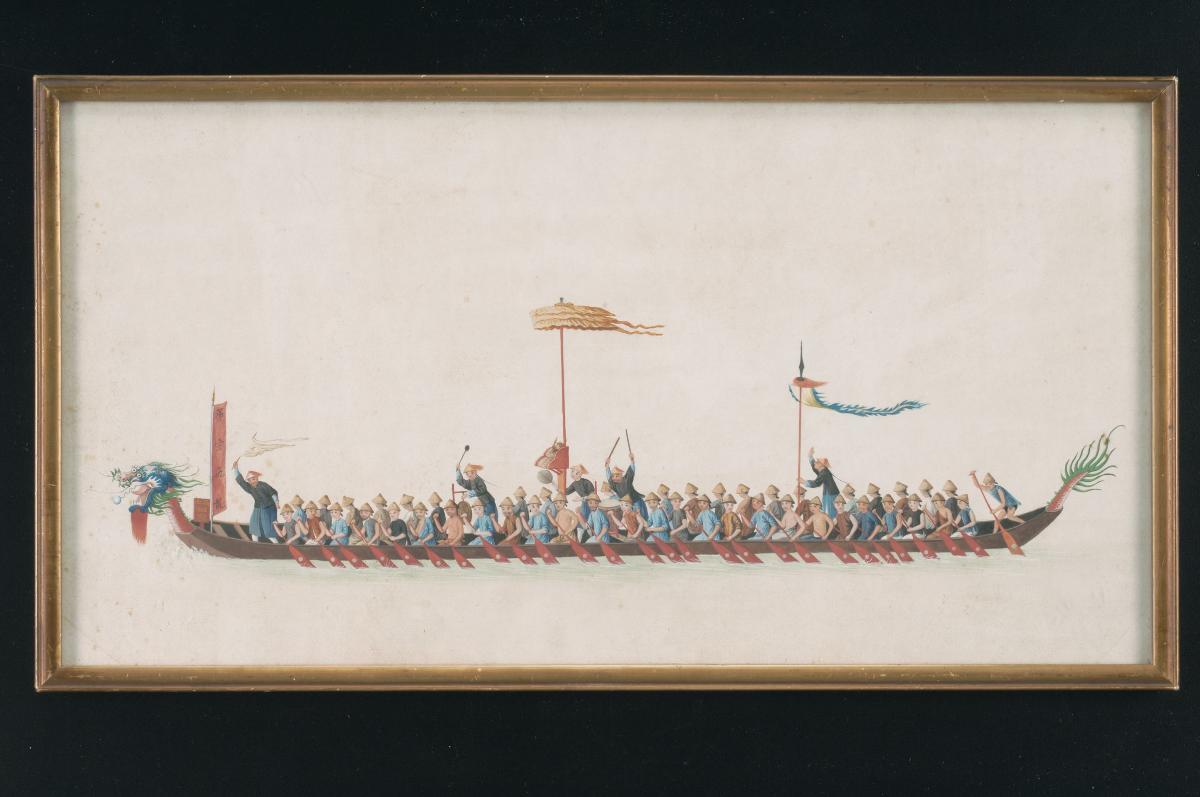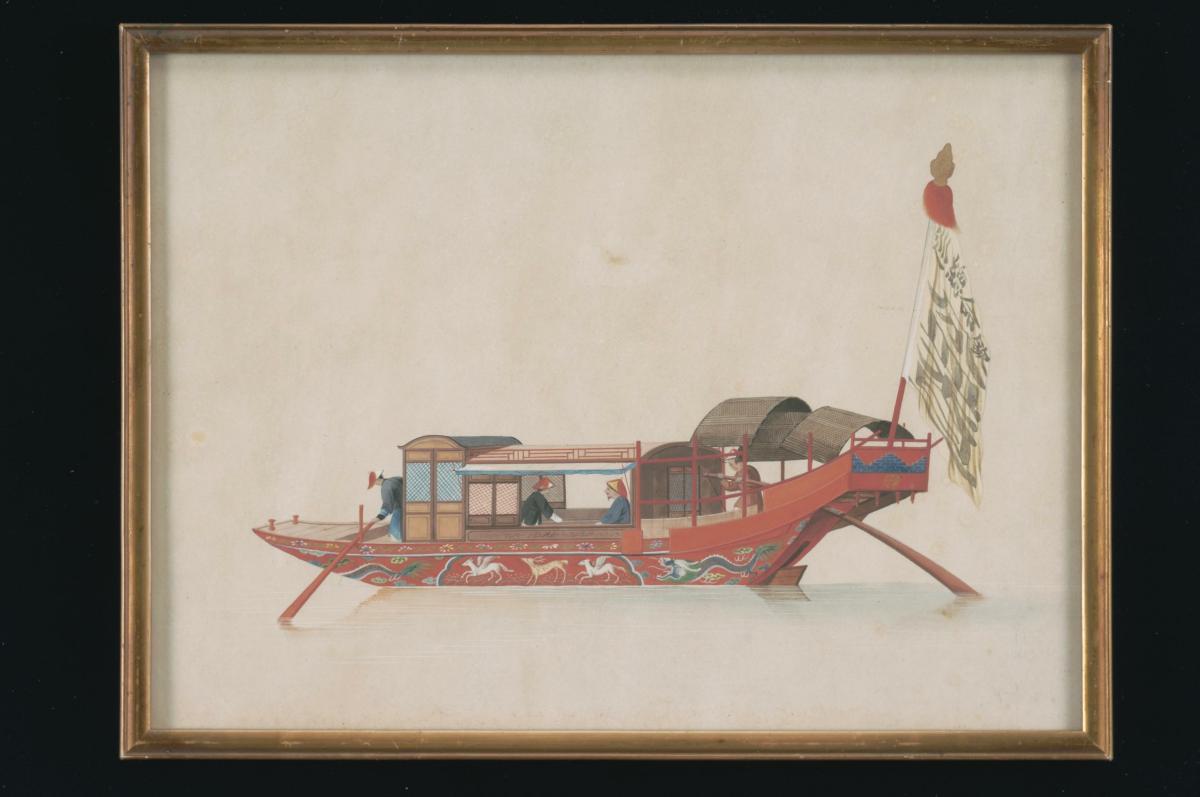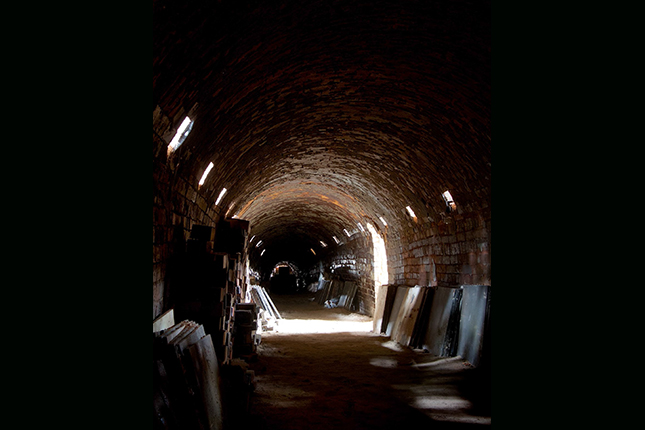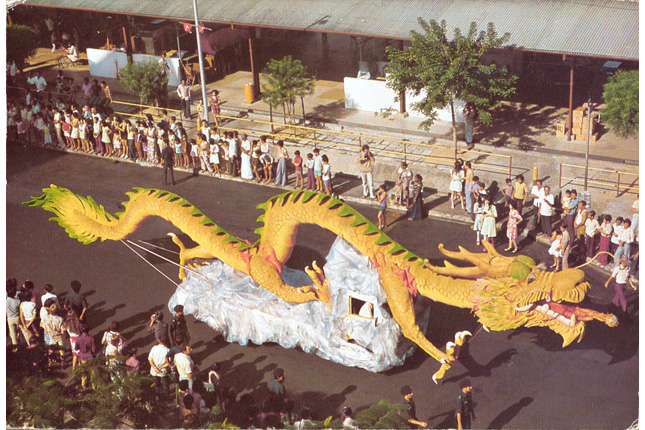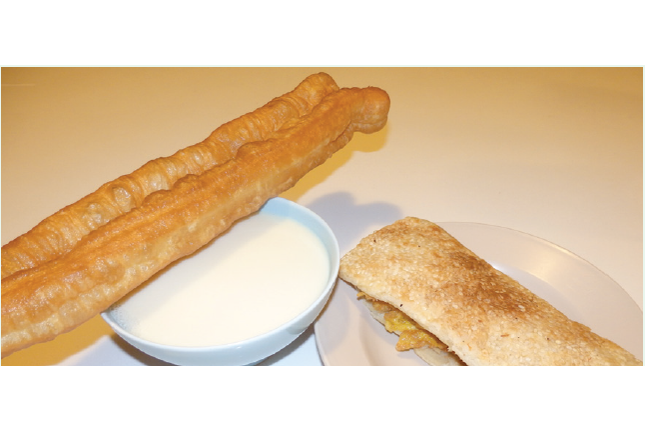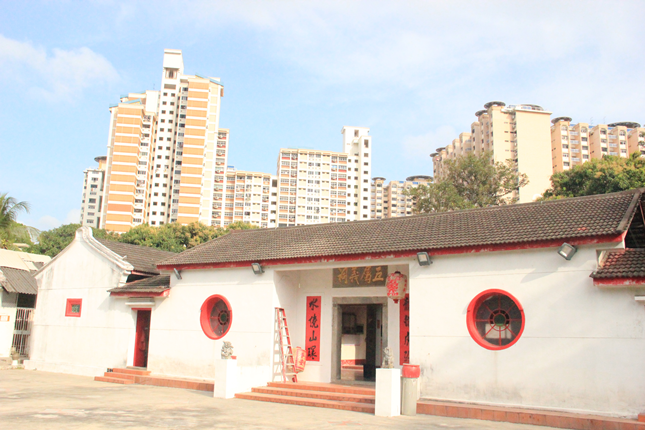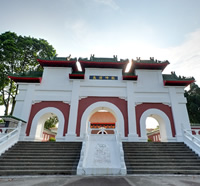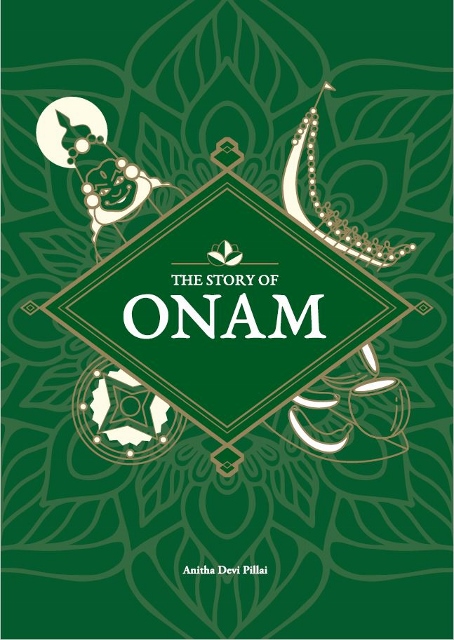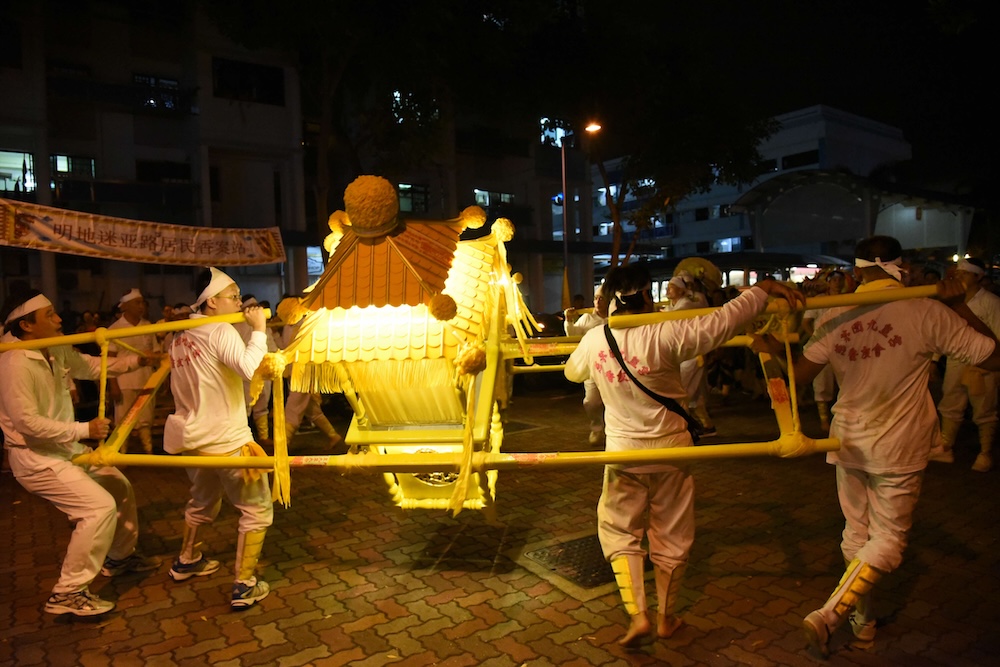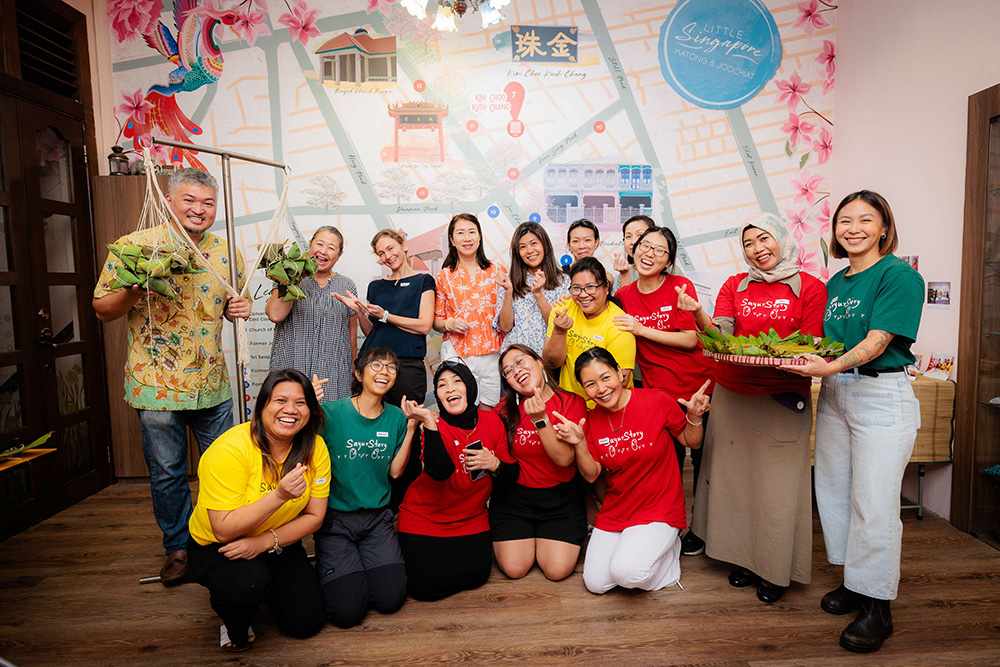Duan Wu Festival
Duan Wu Festival (端午节), also referred to as the “Dragon Boat Festival”, is celebrated on the fifth day of the fifth lunar month.
The Duan Wu Festival’s origins are widely attributed to the story of Qu Yuan (屈原) (born 340 B.C), a government official and poet who lived in China during the Warring States period (481–221 B.C). After seeing his beloved home state of Chu fall into the hands of the rival Qin state, Qu Yuan tied a rock to himself and jumped into the river in despair. Fishermen who witnessed this rowed out to save him. When they failed to do so, they scattered rice stuffed into bamboo stems into the river, to prevent fish from consuming his remains. A different account suggests that throwing the rice-filled bamboo stems into the river was meant to appease Qu Yuan’s spirit, while the fisherman beat their drums and splashed their paddles in the water to prevent fish and water dragons from consuming his remains.
In Singapore, the festival is synonymous with two practices—eating glutinous rice dumplings and dragon boat racing. The glutinous rice dumplings are distinctive pyramid-shaped sticky rice treats with different fillings that have been wrapped in bamboo leaves and tied with string. In Singapore, dragon boat racing has evolved over the years from being a ceremonial act commemorating Qu Yuan to an exciting competitive team sport.
Geographic Location
Early Chinese immigrants brought the practice of making and eating dumplings to Singapore. Today, glutinous rice dumplings are commonly found in hawker centres, coffee shops and even in kiosks in shopping malls. They are often eaten as a snack or light meal. The popularity and demand for glutinous rice dumplings peaks during the Duan Wu Festival. During this period, some families make and enjoy their own homemade glutinous rice dumplings within households.
Dragon boat racing is also a popular competitive outdoor group sport practised across various parts of Singapore all year round, and particularly during the period of Duan Wu Festival. The biggest annual competitive dragon boating activities takes place annually at Marina Bay.
Communities Involved
Duan Wu Festival is celebrated primarily by the Chinese community in Singapore. Some clan associations and community centres in Singapore organise activities during the festival period.
Its two associated practices of dragon boat racing and eating glutinous rice dumplings have also gained a widespread popularity among other ethnic and cultural communities.
Associated Social and Cultural Practices
Glutinous rice dumplings are prepared in a manner that varies with respective communities and dialect groups. For instance, the Hokkien version uses glutinous rice stir-fried with soya sauce, five spice powder, marinated pork and chestnuts, while the Cantonese version uses glutinous rice seasoned with salt and garlic oil, and green beans and pork belly or lard for the filling. Teochew rice dumplings come in three versions—sweet, savoury, or a combination of both—while the Hainanese version is accentuated with a large chunk of fatty pork belly. The Nyonya-style dumplings feature a bluish tinge to the rice created using colour pigment extracted from the blue pea flower. Some families make their own glutinous rice dumplings based on traditional recipes inherited from earlier generations. When the festival draws near, it is common to find women in households gathering to make the glutinous rice dumplings. The grandmother is often the primary figure with knowledge and skills of preparing the glutinous rice dumplings, and may be joined by relatives such as sisters and daughters during preparation. The know-how including the art of wrapping is passed down this way. The finished dumplings are often shared among family members and friends.
Dragon boat races are also very popular in Singapore both during the Duan Wu Festival period and all year round. The biggest dragon boating competition in Singapore is the DBS Marina Regatta. Started in 2012, it attracts teams and participants from around the region. This annual event is known for its carnival-like atmosphere featuring entertainment such as music concerts, and food and game stalls.
Other less common practices associated with the festival include making scented sachets with herbs and coloured silk threads for children to wear to ward off germs and bad luck, and hanging an image of the deity Zhong Kui at the front of homes and stores for protection against evil.
Experience of a Practitioner
Hoo Kee Bak Chang is a company that sells glutinous rice dumplings. Mr Chew Chin Peng, its second-generation owner, inherited the family business from his father. He believes that quality ingredients and precise cooking times are vital in making a good dumpling. Mr Chew views that as long as the glutinous rice dumplings made are delicious and appeal to people, the craft and business of making and selling them will survive.
Present Status
The two main features of the Duan Wu Festival, the glutinous rice dumplings and the boat racing, have become a part of year-round mainstream culture in Singapore.
The practice of preparing glutinous rice dumplings within families may be declining, as Chinese families in Singapore today are smaller and the younger generation are largely unaware of how to prepare glutinous rice dumplings. However, for the handful of family business who sell traditional glutinous rice dumplings, there remains a healthy demand from both local and overseas customers throughout the year. Overseas customers purchase the glutinous rice dumplings as souvenirs from Singapore to be shared with friends and family.
For dragon boat racing, the Singapore Dragon Boat Association (SDBA) is an example of organisation which has been developing sporting excellence in dragon boat racing since 1987. SDBA conducts group orientation programmes, which are popular not only with individuals but also with companies as a team-building exercise. A growing number of secondary schools and post-secondary institutions offer it as a team sport for both male and female students. There are also competitive local adult teams that are increasingly multi-ethnic.
References
Reference No.: ICH- 029
Date of Inclusion: April 2018; Updated March 2019
References
Barker, Pat. Dragon Boats: A Celebration. United States: Weatherhill, Inc, 1996.
Chittick, Andrew. “The Song Navy and the Invention of Dragon Boat Racing.” Journal of Song-Yuan Studies, 41: 1-28, 2011.
Goh, Kenneth. “Dumpling making a family tradition.” The Straits Times, 17 June 2012.
Goh, Kenneth. “Wrapped in tradition.” The Straits Times, 31 May 2015. Khoo, Hedy. “Bak chang.” The New Paper, 17 June 2012.
Ng Jun Sen. “We paddle with one heartbeat,” The New Paper, 18 January 2015.
Tan, Lynne. “How to wrap a rice dumpling or bak chang?” The Straits Times, 1 June 2016.
Quek, Eunice. “Healthier dumplings on the menu.” The Straits Times, 29 May 2016.







